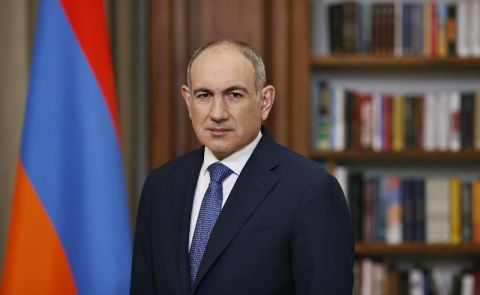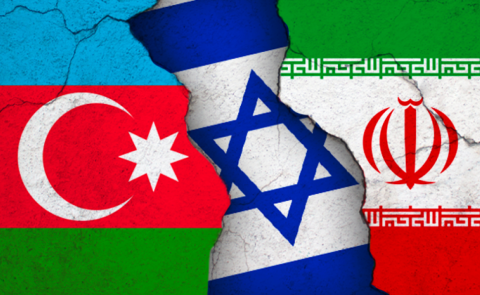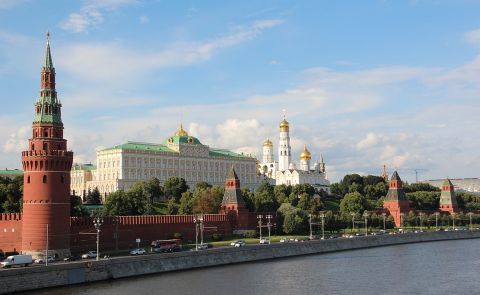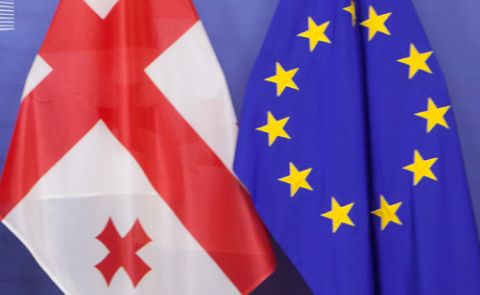
Nagorno-Karabakh: Lavrov and Zarif talk of deepening dialogue, Azerbaijani Presidential aide on US and OSCE involvement

On 26 January, the Russian Foreign Minister Sergey Lavrov met with his Iranian counterpart Mohammad Javad Zarif to discuss the prospects of cooperation after the Nagorno-Karabakh war.
“Taking into account the role of our countries in the region, we are interested in deepening the dialogue on such issues as security in the Persian Gulf, the Afghan settlement, and, of course, we can discuss the situation in Nagorno-Karabakh after the leaders of Russia, Azerbaijan and Armenia reached agreements,” said Lavrov.
Zarif congratulated Lavrov and Russia’s President Vladimir Putin on the fact that they managed to end the conflict. "In any case, our common concern was that the conflict took place in our common neighbourhood, escalated the situation, people were dying there. There is an opportunity to turn this conflict into some kind of common opportunity for us," he explained. "Therefore, one of the goals of my regional tour is to work out the possibilities that arise from the agreement reached between the President of Azerbaijan Ilham Aliyev and the Prime Minister of Armenia Nikol Pashinyan under the leadership of the Russian President," he added.
Lavrov emphasised that a greater cooperation in the Caucasus is foreseen in the near future. “We are not going to stop our attention on the situation in Nagorno-Karabakh. The meeting of Russian, Azerbaijani and Armenian leaders on 11 January is a confirmation of this. At this meeting an agreement was reached on the development of mechanisms for opening economic and transport communications in the region. Not only Russia, Azerbaijan, and Armenia, but also Iran, Turkey, and Georgia have felt the peaceful living of this region, being in kind neighbourly conditions and prosperity in this region. I also mention Georgia. Because it is also a part of the South Caucasus. In general, initiatives on establishing new relations of three countries of South Caucasus, taking into account the new reality with the attendance of three neighbouring countries Russia, Iran, and Turkey, are voiced. The reality is that there is no war, there is an agreement on eliminating blockades. We do not have doubt that Iran will be interested in joining these projects,” he stated.
In the context of the 11 January meeting, it was reported that the deputy prime ministers of Russia, Armenia and Azerbaijan are expected to meet in Moscow on 27 January to discuss the reopening of transport links in the South Caucasus. The Russian side will be represented by Alexey Overchuk, Armenia by Mher Grigoryan and Azerbaijan by Shahin Mustafayev. According to the reports, the deputy prime ministers will discuss several possible projects, in particular, the construction of a railway through the territory of Armenia that will connect Azerbaijan and its exclave Nakhichevan, as well as Armenia with Russia. In addition, the deputy prime ministers will discuss a proposal to link Armenia and Iran by rail through Nakhchivan. Baku also would like to achieve an agreement on the construction of a highway in the region, which will also be a possible topic of discussion.
The Assistant to the Azerbaijani and the Head of the Foreign Policy Department of the Presidential Administration Hikmet Hajiyev held an interview with the US think tank Atlantic Council, where he spoke on the prospects of cooperation in Nagorno-Karabakh. Hajiyev emphasised that currently there is a real opportunity for peace between Azerbaijan and Armenia and to build a new security architecture in the South Caucasus. The aide also spoke on the “3+3” cooperation format in the South Caucasus and the prospects of embedding other actors in the process.
Hajiyev also spoke of the role that the US could play in Nagorno-Karabakh. He said that the US had rich experience and initiatives in for post-conflict period and could bring this work to the South Caucasus. Hajiyev stressed that the US, as a country and as a co-chair of the OSCE Minsk Group, can play an active role in peacebuilding, post-conflict reconstruction and reconstruction. Noting that “smart” green cities will be built in the Azerbaijani controlled areas, Hajiyev added that there are wide opportunities for the US private sector in this process.
Regarding the role of the OSCE Minsk Group after the conflict, Hajiyev said that the Group has to adapt to the new reality. Touching upon the reputation of the OSCE Minsk Group in Azerbaijan, Hajiyev said that it was low, mainly due to the inability of the organisation to make a real contribution to resolving the conflict for more than 25 years. He said that the past narratives of the OSCE Minsk Group on the conflict no longer work, because the situation in the region has completely changed. The aide further stressed that the OSCE inappropriately exaggerated the status of Nagorno-Karabakh issue, which created false and unnecessary expectations in Armenia. He noted that the Minsk Group can contribute to peacebuilding in the future through various projects.
See Also


Azerbaijan Calls for 'Dialogue and Diplomatic Resolution' Between Israel and Iran

Azerbaijan and France Explore Industrial Cooperation

Russian Senator States Georgia Rejects Brussels’ Directives

EU Ambassador Rules Out Suspension of Visa-Free Travel for Georgia

